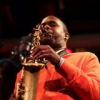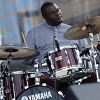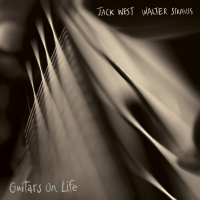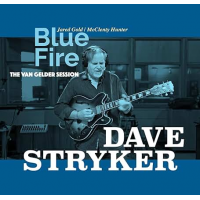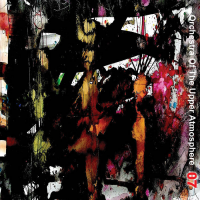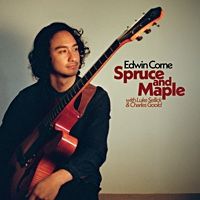Home » Jazz Articles » Album Review » Warren Wolf: History Of The Vibraphone
Warren Wolf: History Of The Vibraphone
The opening track is by composer/vibraphonist Terry Gibbs, who was an early bebop enthusiast, and is fittingly entitled "Bopstacle Course." It is filled with infectious swing and boundless energy that defined Gibbs' playing and captured by Wolf's spirited rendition. Lionel Hampton began his playing career as a drummer, when in the mid-1930s, he switched to the vibraphone, taking the instrument from the novelty category to a mainstream instrument. "Midnight Sun" was composed by Hamilton and Sonny Burke in 1947 and was first recorded in that same year by Hamilton and his orchestra. In Wolf's chart, alto saxophonist Tim Green is featured as he runs through the melody lyrically and harmonically layered. Wolf takes up Hamilton's signature sound in his solo turn and infuses it with his modern sensibilities.
As the album progresses, Wolf delves into the nuanced, bluesy sophistication of Milt Jackson whose work with The Modern Jazz Quartet brought a new level of elegance to the vibraphone. The composition chosen to exhibit this style is the John Lewis gem "Django," which became one of the Quartet's signature features. The number was executed with a deep reverence to the Jackson style. Bobby Hutcherson had an avant-garde approach to the vibraphone, which expanded its possibilities. His "Herzog" composition exemplifies this, where Wolf captures Hutcherson's exploratory spirit. With the inclusion of alto saxophonist Green, along with the vibrant piano of Alex Brown, the track is complex and richly textured, and Wolf and his cohorts show their ability to navigate the more abstract elements of jazz.
On "Sad Eyes,"Warren Wolf uses the composition to pay homage to Cal Tjader's Latin jazz influence, where the vibraphone takes on new cultural and stylistic dimensions, reflecting the instrument's versatility and global reach. Wolf's playing is precise and evocative, easily slipping into the Latin groove.
Whether it is Roy Ayers "Vibrations," or Joe Locke's "Saturn's Child" or his composition "I See You Baby, Looking At Me," Warren Wolf has created a body of work that is stimulating and relevant.
Track Listing
Bopstacle Course; Midnight Sun; Django; Herzog; Sad Eyes; Captain Señor Mouse; Vibrations; Spring High; Saturn's Child; I See You Baby, Looking At Me; Midnight Sun Alternate Take.
Personnel
Warren Wolf
vibraphoneTim Green Saxophone
saxophone, altoAlex Brown
pianoVicente Archer
bassCarroll Dashiell III
drumsAlbum information
Title: History Of The Vibraphone | Year Released: 2024 | Record Label: Cellar Music Group
Tags
PREVIOUS / NEXT
Warren Wolf Concerts
Support All About Jazz
 All About Jazz has been a pillar of jazz since 1995, championing it as an art form and, more importantly, supporting the musicians who make it. Our enduring commitment has made "AAJ" one of the most culturally important websites of its kind, read by hundreds of thousands of fans, musicians and industry figures every month.
All About Jazz has been a pillar of jazz since 1995, championing it as an art form and, more importantly, supporting the musicians who make it. Our enduring commitment has made "AAJ" one of the most culturally important websites of its kind, read by hundreds of thousands of fans, musicians and industry figures every month.




